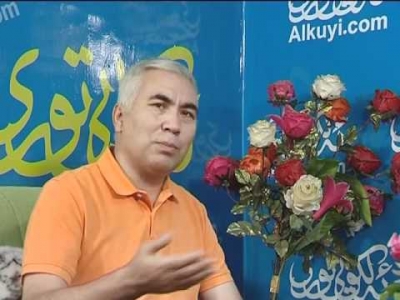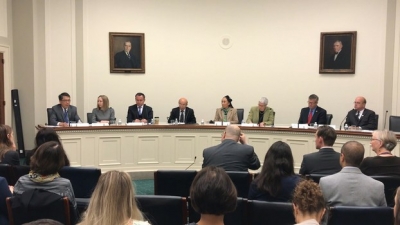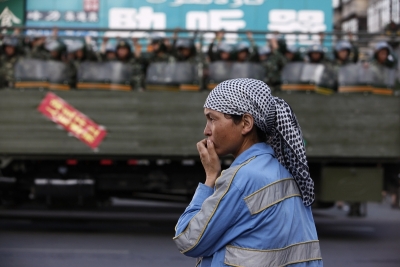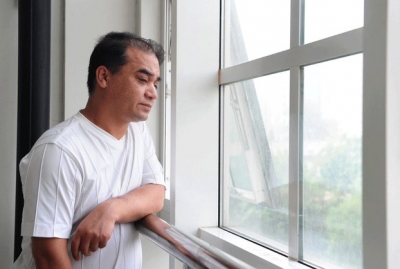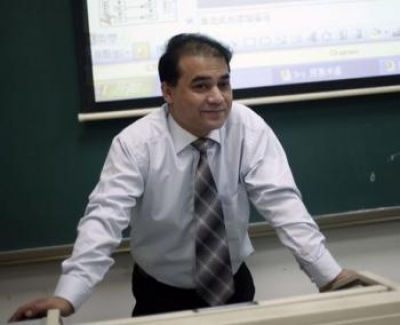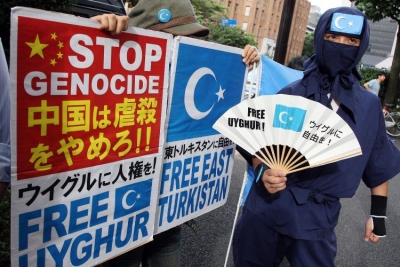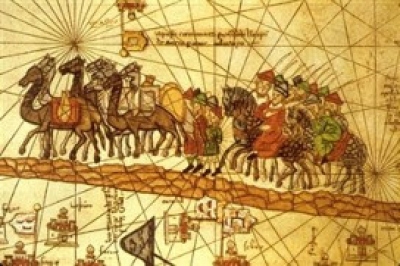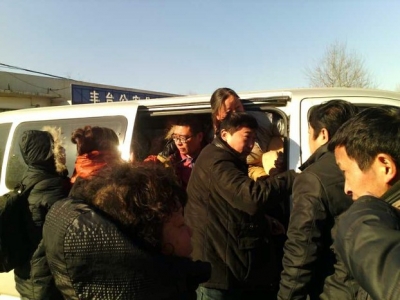Human Rights
China's Wild West The Problem With Beijing's Xinjiang Policy
Last October, a sport-utility vehicle sped onto a crowded Beijing sidewalk and exploded at the foot of Tiananmen gate, killing five people and injuring nearly 40 others. In the aftermath of the attack, the Chinese government declared the explosion an act of terrorism committed by Islamic jihadists from western China. Meanwhile, the foreign media turned the spotlight on the home province of the attackers -- China’s Xinjiang Uighur Autonomous Region -- where some nine million Turkic-speaking Muslims, known as Uighurs, have lived under the control of the Chinese Communist Party since 1950. This arrangement has not been altogether peaceful; just this week, for example, local police gunned down six people in the city of Xinhe.
EU Joins US in Criticizing China's Detention of Uyghur Scholar
The European Union joined the United States in criticizing China for the detention of outspoken ethnic minority Uyghur scholar Ilham Tohti as Beijing maintained its silence on his whereabouts and the specific charges he faces. The Chinese government said the professor at Beijing's Central University for Nationalities was "criminally detained" from his home on Wednesday because he was "under suspicion of committing crimes and violating the law" but it did not give any details.
Uyghur Human Rights Project urges international community to maintain vigilance on the condition of Uyghur academic, Ilham Tohti
The Uyghur Human Rights Project (UHRP) expresses its concern for the condition of Ilham Tohti, who was arbitrarily detained by Beijing and Xinjiang police on January 15, 2014. UHRP calls on the Chinese authorities to immediately release Mr. Tohti and to return all personal property, including data, confiscated from Mr. Tohti during the raid on his home in Beijing. UHRP also commends the strong statements issued by the US State Department and European Union regarding Ilham Tohti’s arbitrary detention and asks officials from concerned governments to sustain pressure on China for Mr. Tohti’s unconditional release.
China decries foreign interference in detained academic case
BEIJING (Reuters) - China decried what it called interference in its internal affairs on Friday, after both the United States and European Union voiced concern over the detention of a high-profile ethnic Uighur academic from the restive western region of Xinjiang. Police in Beijing on Wednesday seized Ilham Tohti, a prominent economist who has championed the rights of the Muslim Uighur community, from his home and his whereabouts were unknown, his wife and a close friend told Reuters.
WUC Set to Hold Worldwide Demonstrations
Alarmed by recent killings of Uyghurs in East Turkestan, the World Uyghur Congress (WUC) will be coordinating protests around the world to demonstrate outside Chinese embassies and consulates. Taking place between 10 and 13 January 2014, the WUC seeks to draw attention to the Chinese government’s systematic human rights violations, especially extrajudicial killings, against Uyghurs in East Turkestan through such demonstrations, and calls upon all those wishing to show support to attend.
Guest post: the route to better relationships with China lies along the Silk Road
Coined by prominent Chinese academic Wang Jisi back in 2011, the ‘March Westwards’ strategy is the external component of the ‘Develop the West’ strategy that Beijing advanced to bring prosperity and development to its historically underdeveloped and turbulent western provinces of Xinjiang and Tibet. Long-standing sources of instability for the central government, the regions were racked by particular violence in 2008 (Tibet) and 2009 (Xinjiang). The brutality of the Xinjiang violence was a wake-up call, with more than 200 reportedly killed on the streets of Urumqi, the provincial capital, as the chaos forced then-leader Hu Jintao to leave an international G8 Summit in L’Aquila to manage the situation.
China’s treatment of minorities troubles Canada’s religious freedom ambassador
OTTAWA — Canada’s religious freedom ambassador says he is deeply troubled about the Chinese government’s “egregious” treatment of religious minorities, and that he won’t hold his tongue despite growing trade ties between the two countries. Since becoming Canada’s inaugural ambassador for religious freedom in February, Andrew Bennett has condemned attacks and restrictions on religious minorities in Egypt, Pakistan, Iran and Syria. But Bennett pulled no punches on China in an interview Monday, saying he remains very worried about the Chinese government’s “unacceptable” treatment of Falun Gong practitioners as well as Buddhist Tibetans, Uighur Muslims and Christians.
Beijing Hits Out Amid Criticism on Human Rights
Beijing officials on Tuesday hit out at international concern over its human rights situation, saying that only the Chinese people have the right to speak out on the subject. But police in the Chinese capital swooped on the thousands of petitioners who arrived in the Chinese capital to pursue complaints against the ruling Chinese Communist Party ahead of Human Rights Day on Tuesday. "There are tens of thousands of petitioners lurking in Beijing," retired People's Liberation Army (PLA) officer Gao Hongyi told RFA's Mandarin Service.Gao, who hails from the eastern port city of Qingdao, said he and dozens of other former PLA officers planned to converge on the United Nations representative offices in Beijing's embassy district on Tuesday. Thousands of petitioners thronged the alleyway outside the complaints offices of the central government, Supreme People's Court and National People's Congress on Tuesday, on a street dubbed by petitioners the "Dead End Alley of the Three Cheats."

